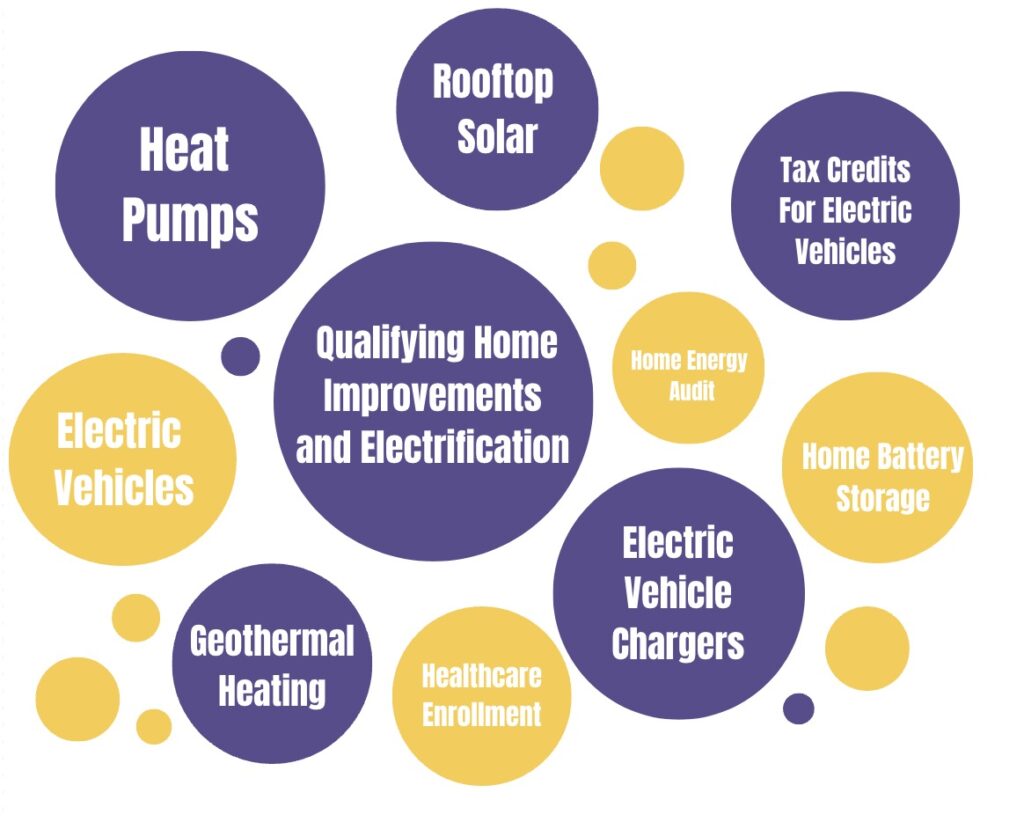Awareness, tax incentives, application assistance
Establishing a baseline for larger projects
Recruitment from within the community, capacity to scale
Build grassroots support, amplify urgency, grow community consensus
Tracking toxic narratives, countering with factual information
Climate change is the most urgent and existential threat our society faces. To address this threat, climate policies have been enacted at the federal, state, and local levels to put the United States on a pathway to achieving net zero emissions by 2050. These transformative policies, like the Inflation Reduction Act, can now be leveraged to solve the climate crisis, directly improve people’s lives through significant cost savings, and create a more equitable economy. Successful implementation of these laws will enable the US to meet its climate commitments and have the potential to generate momentum for further progress. However, delivering on the promise of these policies will be extraordinarily difficult – it requires the voluntary adoption of tax credits, grants, and rebate programs by individuals, businesses, non-profits, and local governments.
An intentional, targeted effort to help implement policies like the Inflation Reduction Act (IRA), as well as outreach to generate support for renewable energy projects, is critical to combatting climate change. The IRA provides $51 billion in consumer incentives to help residents transition to clean energy. While the investment is historic, only 27% of voters under the age of 45 know about it.
These incentives will go largely untouched without a concerted effort to deliver them to the middle class, which will be necessary for large-scale adoption.
Billions of dollars in incentives for the expansion of clean energy are currently available through state and federal programs including the Inflation Reduction Act (IRA) of which a portion is available directly to states in the form of grants. They include tax incentives for:

To inform residents, the Civic Operations Group (COG) takes a proactive approach by engaging early, educating, and connecting residents to resources as an act of goodwill that builds trust. COG works to get ahead of negative narratives by framing the renewable energy transition as an economic opportunity rather than an economic threat. Early engagement and continuous community collaboration help to shape public opinion in its infancy, combat misinformation, and forge a sustainable path to success. Starting outreach efforts before renewable energy projects begin will allow us to soften the ground and abate any qualms about potential renewable energy projects.